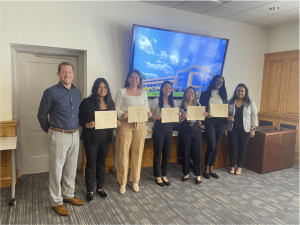This past December, ten teams and 48 students participated in the Department of Management’s Fall 2022 Live Strategy Case Competition sponsored by McCormick & Company. The McCormick & Co. judges named three winning teams. Students from the winning teams received monetary scholarships for their innovative strategies.
The sponsoring company presented students with a case study about digital engagement, popular culture and social media trends. The case challenged students to “capitalize on consumer trends and develop a digital engagement strategy that further engages the consumers and enhances McCormick’s brand presence and engagement.”
Taking first place in the competition was Team CASIS, a five-member team including Amanda Lien, Clarence Smalley, Ian Harvey-Thomas, Sierra Silkman and Samantha DeLeon.
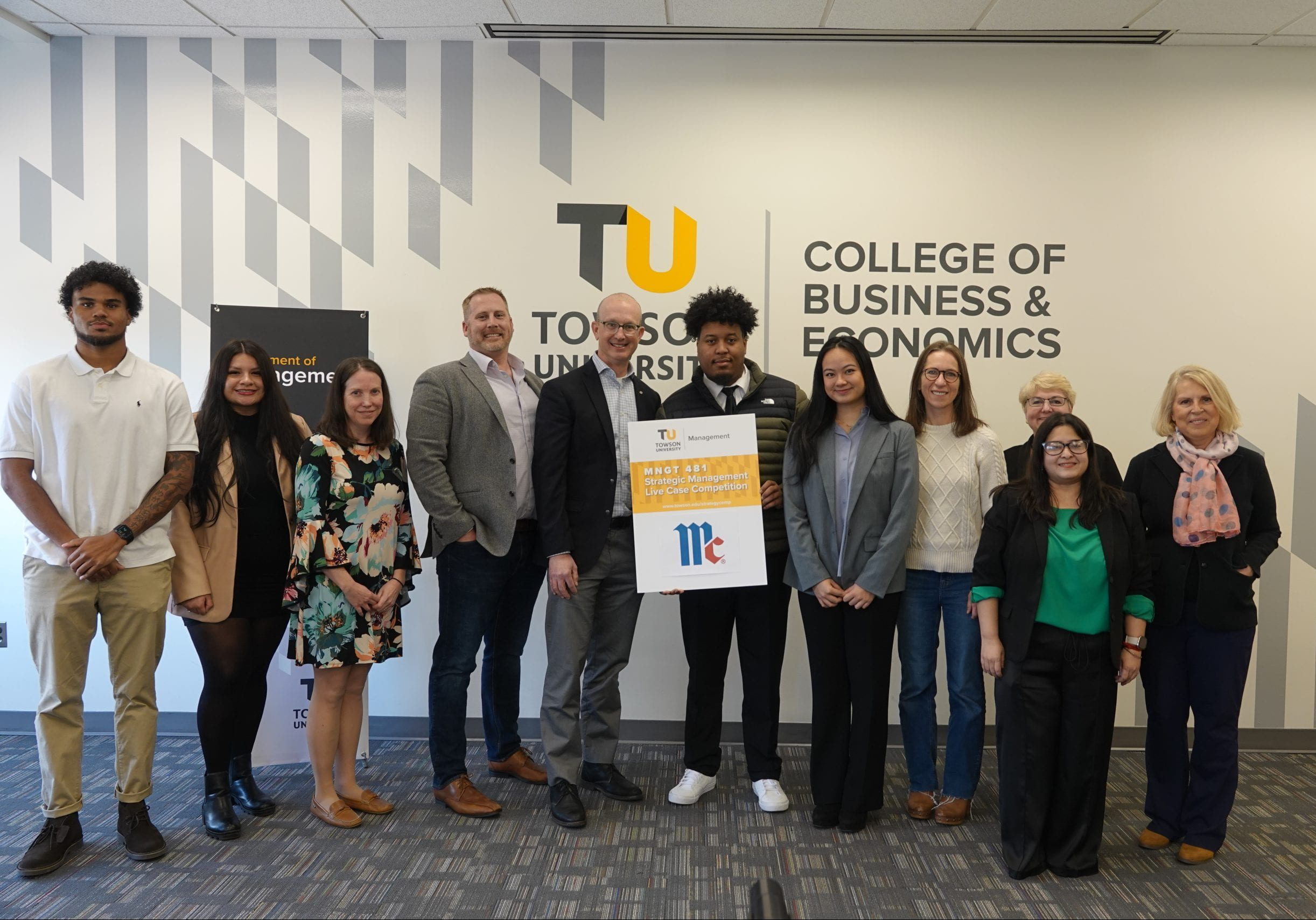
In second place came The McCormick Club, a five-member team including Carly DiGiacomo, Noah Hagan, Hamza Mushtaq, Richard Slemaker and Taran Thielmann.
Digital Enablers won third place with members Dylan Mayer, Sam Ray and Nicholas Wynn.
The first-place team, Team CASIS, was made up of students from a variety of majors allowing them to draw insight from several disciplines. When asked about the team’s winning strategy, Sierra Silkman their professor, Dr. Koushikee Dutta, for her help with preparing the team for success. “Dr. Dutta [taught us how] to do a comprehensive analysis of the company including internal, external and financial analysis. We used that information to come up with a strategy that we thought would be representative of the company… making sure we hit on all their key strengths.”

Each semester, the upper-level MNGT 481 Strategic Management course offers students the opportunity to compete in the Live Strategy Case Competition to test the knowledge and skills they have gained during the class and throughout their academic careers. It is an excellent opportunity for students to practice presentation skills in a real-world environment, as well as allowing students to network with businesses local to the Towson area.
“This event is not only high impact, experiential, and an amazing learning experience for our graduating students, but it also highlights the best and the brightest in our college marking the beginning of the journey into their professional careers,” Dr. Filiz Tabak said. “None of this could have been possible without the participation of McCormick. We are very grateful to McCormick top executives for their time throughout the semester.”
In total, 310 students across 10 sections of the MNGT 481 capstone course worked on the McCormick case. Students across all sections are divided into teams and given the duration of the semester to research and prepare a written report and presentation. Teams present to their classes and the winning team from each class section goes on to present their case to executives from the sponsoring company.

Three McCormick & Co. executives participated in the competition as judges and provided students with invaluable feedback and a plethora of thoughtful questions. “We valued and enjoyed our time supporting TU’s Live Strategy Case Competition,” said Ryan Charlier, McCormick & Company’s Vice President of Finance. “The energy and the thought the students brought to their recommendations was evident in their presentations and provided a great perspective into the minds of one our important and growing consumer bases.”

When asked what advice they would give to future participants of the Live Strategy Case Competition, members from the first-place team shared two key tips: know your material and have fun.
“You’re here for a reason,” Ian Harvey-Thomas said. “They value you as much as you value them. Knowing your material is all you need. This is your strategy, your research. You know it.”
“The key is having fun,” Sierra added. “We’re very diverse, which helped our team. We had all different majors that came together so we came at it with different perspectives. We have diverse backgrounds as individuals–athletes, people working full time, different personalities. We were able to mesh well, and we worked hard. It was a lot of fun.”
Interested in learning more about or becoming a sponsor for the Department of Management’s Live Strategy Case Competition? Visit our website for more information.


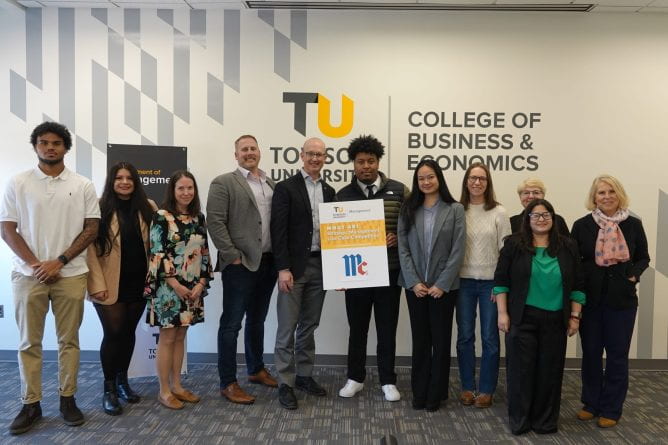
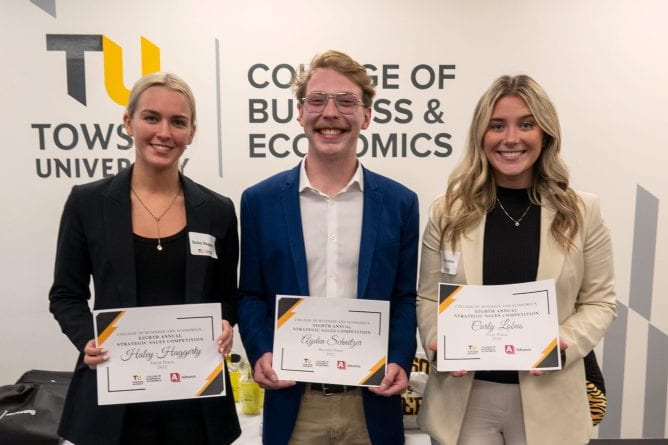
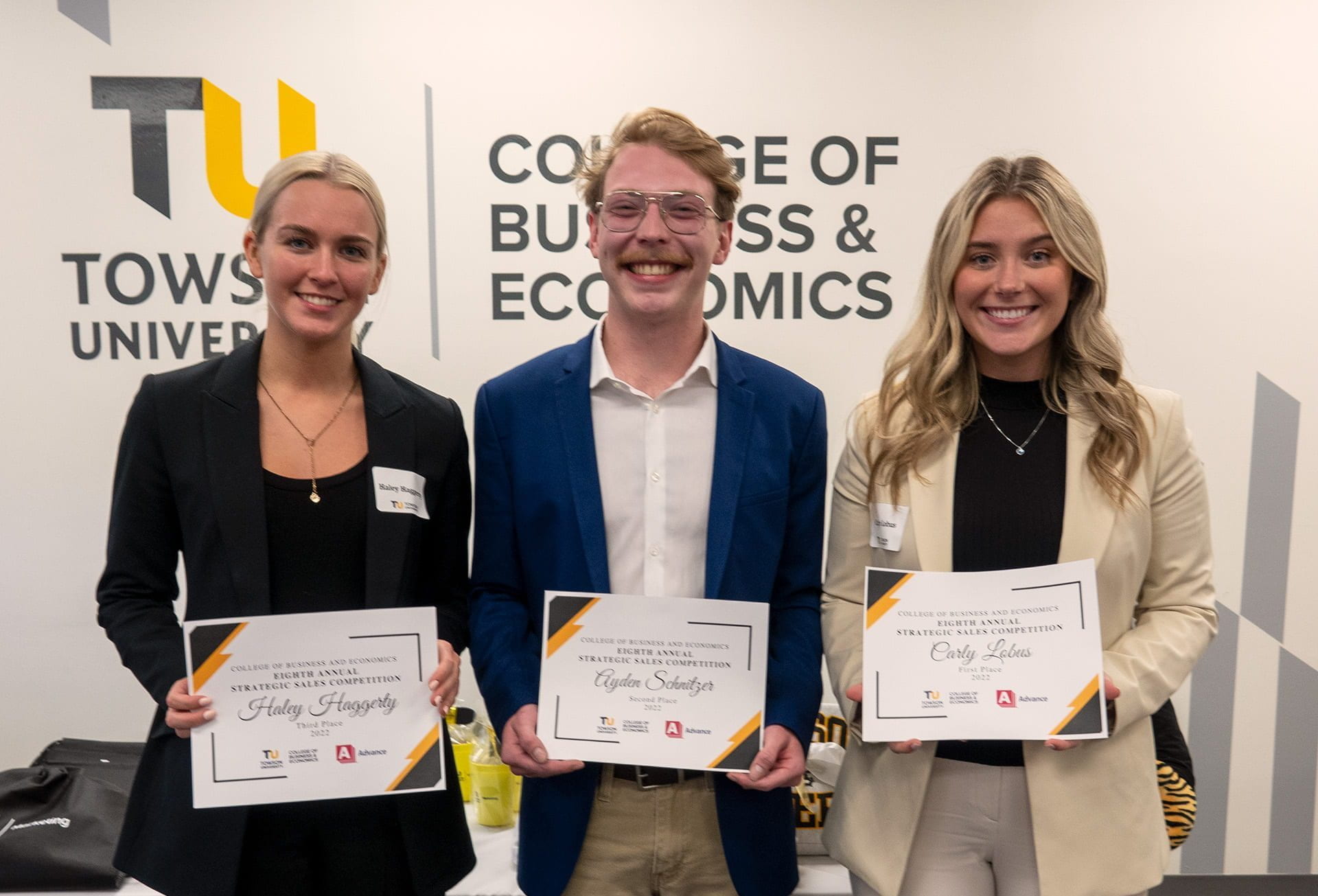

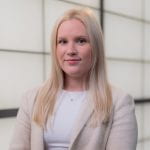
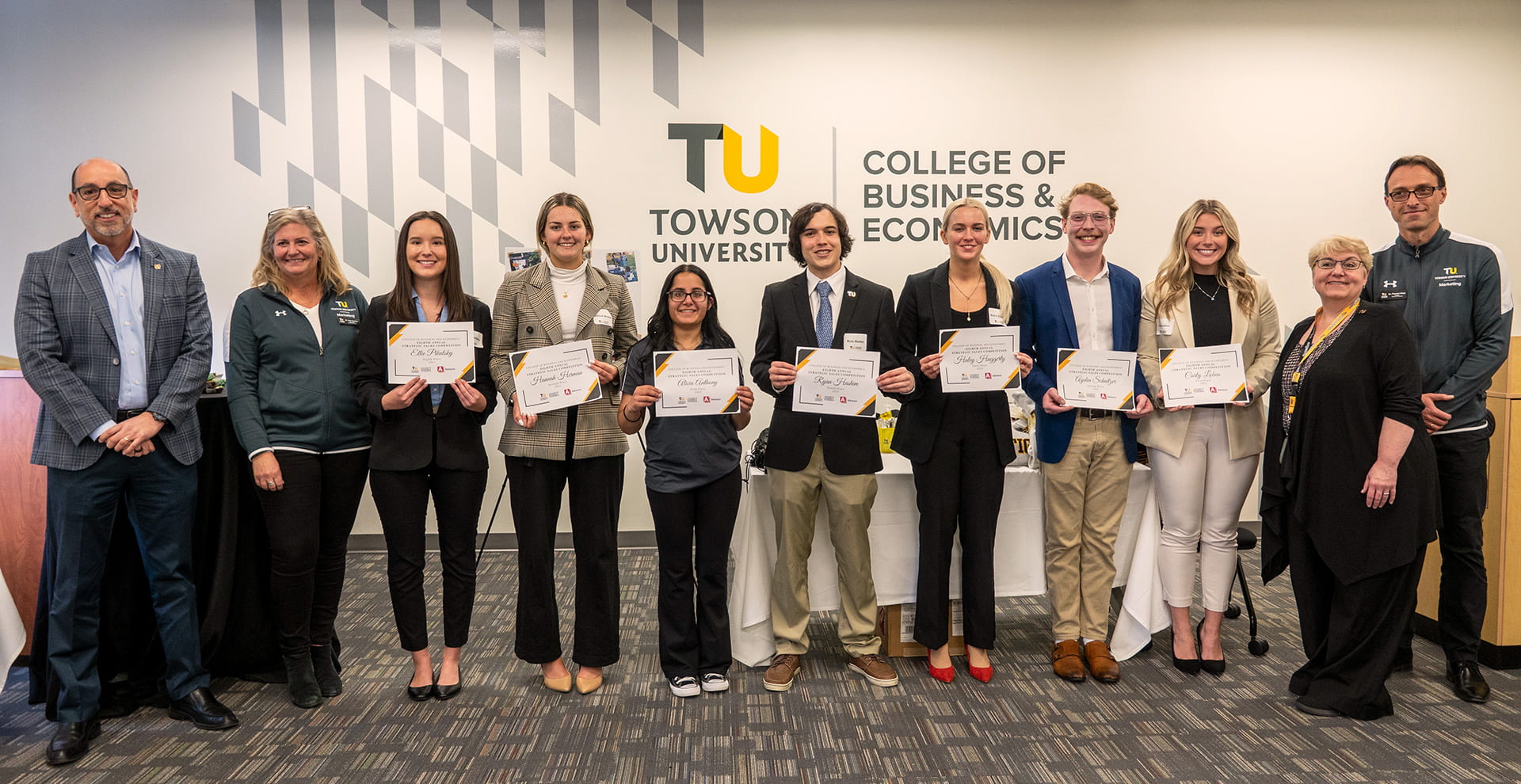
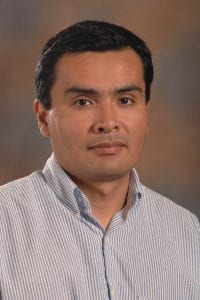 Dr. Jorge Romero has been with the accounting department at the College of Business and Economics at Towson University since 2008. During this time, he has taught a variety of undergraduate and graduate classes, as well as undertaking some exciting research projects. I had the chance to speak with Dr. Romero and was able to gain some valuable insight into his career, the world of accounting, and what it is like to be a professor at Towson University.
Dr. Jorge Romero has been with the accounting department at the College of Business and Economics at Towson University since 2008. During this time, he has taught a variety of undergraduate and graduate classes, as well as undertaking some exciting research projects. I had the chance to speak with Dr. Romero and was able to gain some valuable insight into his career, the world of accounting, and what it is like to be a professor at Towson University. Raquel Tennant, a 2019 graduate of the College of Business and Economics, always had a knack for finance. Tennant always was making lists for her spendings and math came easy to her. Despite this, Tennant did not like the abstract nature of the subject and wanted something that could be applied to everyday people. When she found
Raquel Tennant, a 2019 graduate of the College of Business and Economics, always had a knack for finance. Tennant always was making lists for her spendings and math came easy to her. Despite this, Tennant did not like the abstract nature of the subject and wanted something that could be applied to everyday people. When she found 